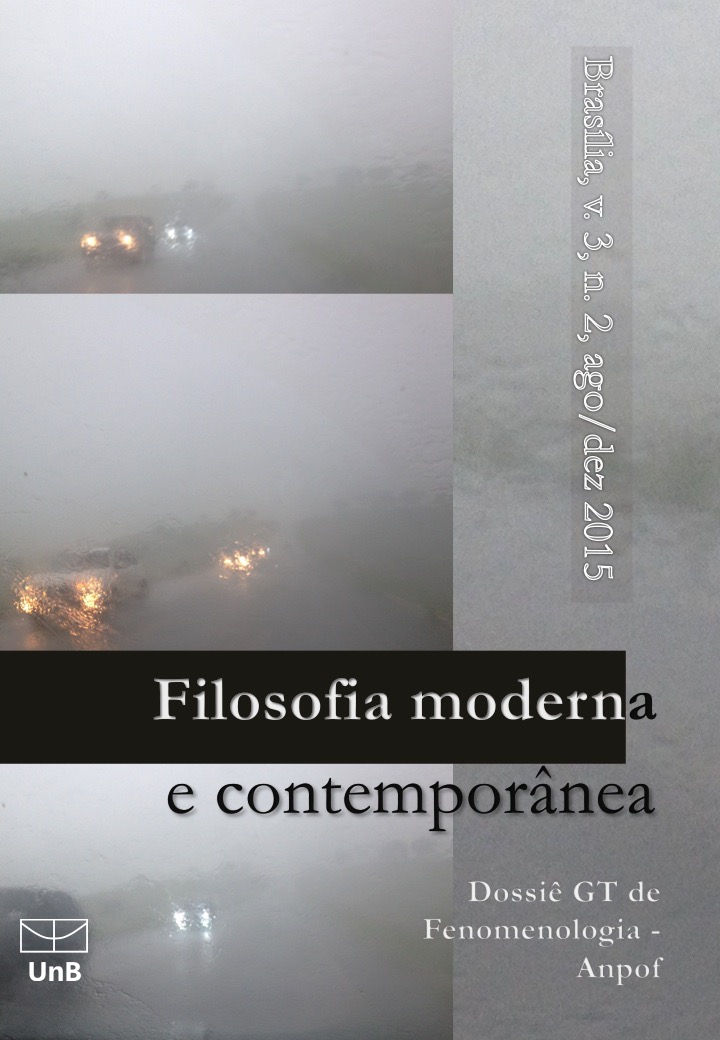Between phenomenology and hermeneutics: subjectivity's responsive condition
DOI:
https://doi.org/10.26512/rfmc.v3i2.12512Keywords:
Phenomenology, Hermeneutics, Transcendental, Responsivity, DialogueAbstract
This paper aims to explore therelation between phenomenology and hermeneutics according to the responsive structure of the human subjectivity. Although Husserl proposes a "comeback" to the world of life, he does not give up of a constitutional Ego which, at the moment it makes the reduction, seems to suspend the real movement of life and of language. How could the world as a foundational ground to be something constituted by the ego? Here lies the paradox: to recover the foundational ground of all science is fundamental to recognize the transcendental purity of the constitutional Ego. However the question we highlight is the following: does this called transcendental "purity" mean an obstacle to the dialogical proposed by the philosophical hermeneutics? We shall demonstrate that no, because if we think them based on the respondent singularity (human subjectivity), transcendental phenomenology and dialogical attitude (hermeneutics) become theoretical models that enrich themselves mutually, even if very different from each other.
References
CRISTÃN, R.- La filosofia come lingua europea. In: HUSSERL, E.- Crisi e rinascita della cultura europea. Trad. Renato Cristín, Venezia: Marsilio, 1999 (p. 9-26).
GADAMER, H.-G.- El giro hermenêutico. Trad. Arturo Parada, Madrid: Catedra, 1988.
GADAMER, H.-G.- Verità e método(edição bilíngue). Trad. Gianni Vattimo, Milano: Bompiani, 2000.
GADAMER, H.-G.- Linguaggio. Trad. Donatella Di Cesare, Roma-Bari: Laterza, 2005.
GADAMER, H.-G.- Hegel, Husserl, Heidegger. Trad. Marco Antonio Casanova, Petrópolis: Vozes, 2012.
HUSSERL, E.- A crise das ciências européias e a fenomenologia transcendental. Trad. Diogo Falcão Ferrer, Rio de Janeiro: Forense, 2012.
HUSSERL, E.- Meditações cartesianas e Conferências de Paris. Trad. Pedro M.S. Alves, Rio de Janeiro: Forense, 2013.
LEVINAS. E.- A l’heure des nations, Paris: Minuit, 1988.
RICOEUR, P. ”“ Percurso do reconhecimento. Trad. Nicolás Nyimi Campanário, São Paulo: Loyola, 2006.
WA L D E N F E L S, B. - Fenomenologia dell’estraneità . Trad. Gabriella Baptist, Napoli: Vivarium, 2002.
WALDENFELS, Fenomenologia dell’estraneo. Trad. Ferdinando G. Menga, Milano: Raffaello Cortina Editore, 2008.
Downloads
Published
Issue
Section
License
Copyright for articles published in this journal is retained by the authors, with first publication rights granted to the journal. By virtue of their appearance in this open access journal, articles are free to use, with proper attribution, in educational and other non-commercial settings.


